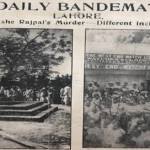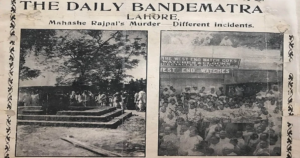The parallels, by now, are well known: A global superpower sends troops to Afghanistan, installs a new leader, and plans to depart within months. Instead, it becomes locked in a years-long struggle against a highly motivated insurgency, and the conflict ends only as a result of the ignominious withdrawal of its armed forces.
Today, the narrative applies to the United States, but decades prior, this was the story of the Soviet Union. The comparison—like references to the Great Game and to Afghanistan as the graveyard of empires—is ubiquitous in coverage of the American intervention. The lesson, if one exists, is that great powers have sought time and again to change Afghanistan to their liking, and failed.
Yet comparatively little attention is devoted in the opposite direction: to how invading Afghanistan changed these countries back home. In the Soviet case, it led the citizens of a superpower to reassess both the ends and the means of empire.
When Soviet troops arrived in Afghanistan in December 1979, the plan was to insert new leadership, strengthen key bases, and leave. By the time the Soviets finally withdrew in February 1989, more than 13,000 of their soldiers had been killed in battle (and 40,000 more wounded), while anywhere from 800,000 to 1.2 million Afghans were dead.
The Soviet war, much like the American one, was a protracted affair fought by a limited number of troops that was out of sight and out of mind for the majority of its citizens. Similar to that in the US, domestic media coverage was limited (though in the Soviet case, this was due to press censorship rather than a lack of media interest or resources), and bodies were returned to relatives under cover of night—as they were for a period during the Bush administration.
Of course, the differences are significant. Opposition within the Soviet Union was harshly curtailed, initially appearing only in dissident publications. The nuclear physicist Andrei Sakharov, the father of the Soviet hydrogen bomb, was sent into internal exile after he wrote an open letter calling for an end to the invasion and an international boycott of the 1980 Olympics in Moscow. As soldiers returned home, however, the extent of the conflict grew difficult to conceal. In Tashkent, the capital of the republic of Uzbekistan and the hub for departing and returning troops, the Belarusian writer Svetlana Alexievich observed how “young soldiers, no more than boys, hop about on crutches.” The Central Committee of the Communist Party received letters from veterans, their relatives, and members of the public about soldiers’ difficulty adjusting to life back home and the apparent futility of their mission.
The war had a major impact within the party, as its leaders sought to balance a desire to remain a global power with an unwillingness to bear the costs of foreign intervention. As the historian Artemy M. Kalinovsky writes in A Long Goodbye: The Soviet Withdrawal From Afghanistan, talk of leaving was overshadowed by confidence in the Soviet Union’s ability to stabilize the country, fear of undermining its status as the leading patron of the global South, and anxiety about losing face before the United States. At the same time, the situation in Afghanistan contributed to a growing reluctance among the Soviet leadership to use force elsewhere. When the question arose of whether to deploy troops to Poland to put down the Solidarity movement in 1980, the KGB head Yuri Andropov said, “The quota of interventions abroad has been exhausted.”
Mikhail Gorbachev came into office in 1985 determined to end the war, calling it a “bleeding wound” the following year. Although previous rulers had sought to present the invasion as a noble humanitarian mission, Gorbachev’s relaxation of censorship allowed the press to reveal the conflict’s sordid sides, and freed a variety of people to voice long-suppressed anger over its consequences. Popular ambivalence turned to revulsion as the public learned about war crimes, drug abuse, and neglect of returning veterans. In the embittered anthem “Soldiers Aren’t Born,” the punk-rock band Civil Defense mourned ordinary people’s sacrifices for hollow ideals (“The coffin was wrapped in a red rag, the heroic march drowned out by angry grief”). Veterans, meanwhile, were outraged by criticism that they saw as unjust denigration of their service. “We’re Leaving,” a song by a KGB special-forces officer that Soviet troops played on repeat during their withdrawal, told “chair-bound critics who stayed at home” not to judge what they couldn’t understand.
This public discussion of the war became part of the Soviet Union’s broader reassessment of its own identity. Images of ailing soldiers coming back from Afghanistan—along with coverage of Stalinist crimes, official corruption, and inadequate health care—fed the rising sense that Soviet society was “sick” and required radical therapy. Withdrawal, to some citizens, offered a chance to reevaluate the country’s history of foreign interventions and create a more democratic state that took care of its people: Sakharov, now freed from exile, framed ending the war as the precondition for other reforms, including arms reduction, freedom of speech, and the end of one-party rule. For others, the splintering of Soviet society into facts over whether Gorbachev’s changes had gone too far (or not far enough) and the country’s deteriorating self-image were disorienting and undesirable. When Alexievich published Zinky Boys, an account of the war’s brutal absurdity based on conversations with veterans, she received furious phone calls and letters. “Who needs your dreadful truth?” one reader “I don’t want to know it!”
Until the very end, the Soviet leadership argued about whether to maintain troops in Afghanistan. The foreign minister Eduard Shevardnadze insisted that the U.S.S.R. had a continued responsibility to protect the Afghan government: “We are leaving the country in a pitiable state. The cities and villages are ravaged. The economy is paralyzed. Hundreds of thousands of people have died.” But public opinion and the political calculus had turned too far against remaining. After the final withdrawal, the Congress of People’s Deputies (the Soviet Union’s highest body of authority from 1989 to 1991) launched an investigation into the war’s causes and results. In October 1989, it condemned the invasion on “moral and political” grounds. A doctrine drafted under Gorbachev defined war as “totally outdated, unacceptable and inadmissible as a means of achieving political objectives.”
These social shifts were significant, but short-lived. Pacifist sentiments competed for attention with other problems, including the nuclear fallout from Chernobyl, food shortages, and interethnic violence in the republics. Elite regiments that had served in Afghanistan were dispatched to put down pro-independence demonstrations in Baku, Tbilisi, Riga, and Vilnius, killing hundreds of protesters. Amid the chaos of the late ’80s, efforts to reinvent the Soviet Union failed, and the country imploded.
The war’s impact was far from over, though. In post-Soviet Russia, some veterans of Afghanistan became involved in private security and organized crime, which had close ties to business and politics. After seeing themselves as victims of official neglect in the ’90s, under Vladimir Putin, veterans assumed new roles as allies of the state and its growing militaristic-patriotic ideology. In 1999, the leadership of the Russian Alliance of Veterans of Afghanistan helped found the organization that became United Russia, Putin’s party. Some individuals who had served in Afghanistan and Chechnya joined OMON, a special-forces division that serves as riot police at protests. Afghanistan veterans (described in the Russian media as “heroes with baseball bats”) played a key role in Russia’s annexation of Crimea in 2014.
Today, as Putin attempts to reassert Russia’s role on the global stage, nationalists have tried to reframe the war, once widely reviled, as a just cause. In 2019, the director Pavel Lungin released Brotherhood, his film about the war’s final months and the Soviet withdrawal. Though sympathetic to Soviet troops—its moral touchstone is a sensitive KGB officer—Brotherhood also shows them killing civilians, making corrupt deals, and drinking despairingly as they prepare to return home to a country that will soon cease to exist. After audience members at an advance screening condemned it as unpatriotic, the film was shown only in limited release. As public memory war has aligned with state goals, the conflict’s approval rating has risen: In a 1991 poll, 88 percent of said the invasion of Afghanistan was unnecessary; In 2019, this number fell to 55 percent. (Revisionism has its limits: A 2018 initiative by the Russian Communist Party to overturn the Soviet government’s condemnation of the war was quietly dropped.)
Russian media have viewed the American withdrawal with a mixture of Schadenfreude, commiseration, and concern over its possible destabilizing effect in the region. In the U.S., the notion that the Soviet mission in Afghanistan caused the U.S.S.R. to fall apart (voiced in 2019 by Donald Trump) has fed anxieties about the end of America’s own empire.
Yet the war was a symptom of Soviet decline, not its cause. Questioning the assumptions that drove the invasion opened up the prospect, however fleeting, of a different future.
About the author: Joy Neumeyer is a historian of Russia and Eastern Europe, and a fellow at the European University Institute. the atlantic










More Stories
Why are right-wing parties winning the European Union elections?
What message is the movie Maa Kali going to give?
Why is the weather pattern changing in countries around the world?